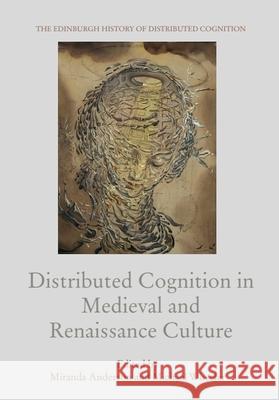Distributed Cognition in Medieval and Renaissance Culture » książka
topmenu
Distributed Cognition in Medieval and Renaissance Culture
ISBN-13: 9781474438131 / Angielski / Twarda / 2019 / 376 str.
Kategorie BISAC:
Wydawca:
Edinburgh University Press
Seria wydawnicza:
Język:
Angielski
ISBN-13:
9781474438131
Rok wydania:
2019
Ilość stron:
376
Waga:
0.79 kg
Wymiary:
24.64 x 17.53 x 2.79
Oprawa:
Twarda
Wolumenów:
01
Dodatkowe informacje:
Bibliografia
Wydanie ilustrowane
Wydanie ilustrowane











